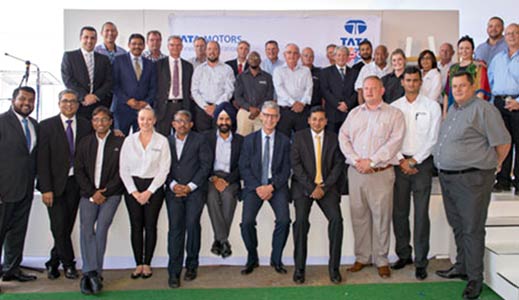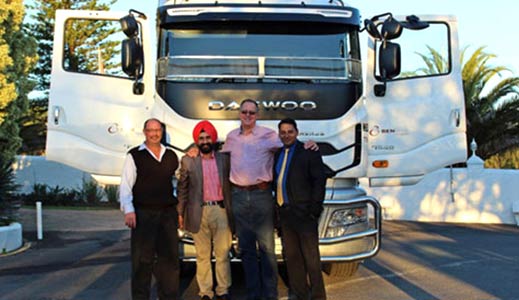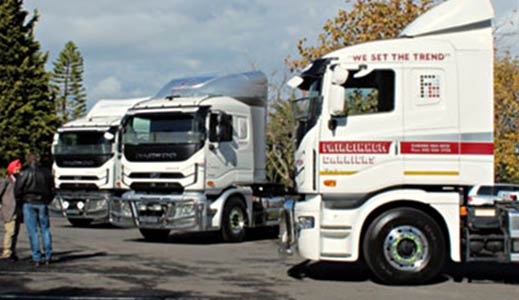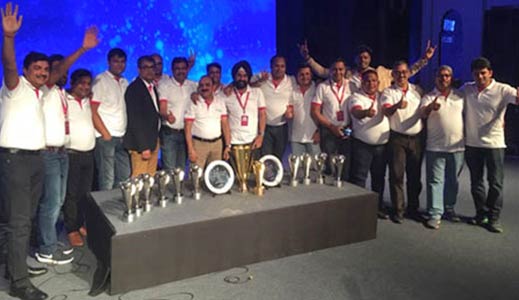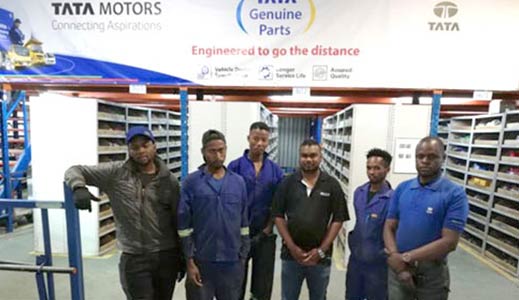Distribution vertical on growth trajectory
October 12, 2018
“Our vision is to double our turnover in the next four years to go beyond US$ 500 million a year and achieve a profit of US$ 30 million before paying tax,” Mr Len Brand, Head Distribution and Executive Director, Tata Africa Holdings reiterated the vision of Tata International’s Distribution vertical very succinctly.
The firming up of commodity and oil prices; consolidation of core businesses; restructuring of non-core businesses; adding Tata Daewoo trucks to broaden offerings; and strong sales resulting in increased market share helped the Distribution vertical to almost break even last year.
Sales of Tata Motors Commercial Vehicles across most countries increased in FY18, with 4,206 units being sold. The business plans to sell at least 1,000 more units this year. The vertical closed Q1 of the current year very strong, with May 2018 recording the best results in the history of the business. A turnaround was also seen in the John Deere and JLR businesses. John Deere Nigeria is the most profitable unit in Q1.
Mitigating forex exposure, the Achilles’ heel of the business, is being addressed through various initiatives such as off-balance sheet solution for receivables. The business would need to be agile as higher oil prices would add pressure to inflation and could force African countries to devalue their currencies.
IT IS ALL ABOUT UPTIME
Tata International’s Auto and Allied solutions help generate livelihood for customers and help them prosper and grow their passions. Reliability of the products is enhanced by maintenance and after-sales support, so as to minimise downtime and therefore loss of revenue for customers.
Mr Brand continued, “My vision for us is built on five glyph paths: Products – have the right basket of products for our customers; Footprint – easy for our customers to reach out to a highly professional touch point to take care of them; Go to market – be the top-of-mind choice for customers as it is easy to do business with us; Parts – must be available and easily accessible; Service – first-time repairs quickly and close to where the products work.”
Identification of customer needs and how the business can help fulfil these needs; ensuring the right product fit to suit customer applications and plans; supporting customers with maintenance, after sales support and technical capabilities across an accessible 3S network that is backed by strategically located 2S facilities and spare parts retailers; and facilitating go-to-market with retail financing projects; is driving the business goal of helping a number of deserving customers realise their dreams.
Right product fit
The business team has been working hard to help customers to have the best uptime and maximise their income from the products sold to them. The team focuses on identifying the ‘Right product fit for the customer’, making sure the right product is sold as per the customer application. If the customer buys a pick-up while he or she actually needs a three-ton truck to transport goods, the customer will not be able to do the task and earn an income.
The business tries to offer a one-stop shop for customers, offering all the products they need to run their operations. For example, a quarry operation needs tippers and also crushers and pick-ups. “We have to make sure we have the basket of products to enable the customer to run his or her operation,” said Mr Brand.
Well-spread network to ensure service and parts availability
The business is identifying locations and touch points close to where customers use the products, as it is crucial to have a well-spread out footprint. “Having a workshop and parts in Nairobi will not be of much help for those customers running trucks in Kisumu which is 500 km away,” explained Mr Brand.
The network is being built to ensure availability of trained and well-equipped technicians to diagnose and fix the problem quickly, by being close to where the truck breaks down to minimise the downtime.
Another strategic initiative has been to reach out to the numerous informal retailers of parts across Africa to carry Tata Genuine Parts. This ensures that parts are easily available across the country. This is a win-win situation, as it helps retailers have a better business through a stable source for parts, eliminating dependence on grey market importers. “The incremental sales through this network have surpassed expectations,” Mr Brand said.
Making it financially viable
Financial solutions where a customer can earn enough to easily pay the monthly instalments are crucial. Running costs of the product they buy are equally important and it is imperative to ensure that the customer can afford to run the product, through reasonable fuel consumption, and maintenance and repair cost.
After-Sales Support
After-sales support is another important aspect of uptime. The after-sales business has been supported by a number of back-end activities, including optimising operations and technology. The business launched a parts initiative called ‘One Bin, One Part’, which is a total overhaul of how parts are ordered, stored, controlled and moved. First-time fill rates are at all-time highs, while the numbers of lines being carried were halved.
TBEM stabilising consistency in operations
Teams across Africa have undertaken various projects to improve operational efficiency. While a lot of work is done and the results are slowly showing, more work needs to be done as the business moves forward in the long term.
Standardisation of customer processes will ensure that customers get a consistent experience at all touch points. TBEM is helping the teams achieve this consistency, helping the teams create a platform to execute all current and new processes in a consistent and repeatable manner.
Supporting community prosperity
The multi-pronged approach adopted by the business is helping ensure that it is on top of customers’ minds in its product categories and ultimately, to fulfil its financial as well as social objectives. The business focus on uptime for customers is resulting in higher absorption ratios across Africa, with an increase in profitability, while delighting customers and supporting the prosperity of the community.
“Each team member plays a distinct role and matters in achieving our vision. We can make a difference in the lives of communities by taking care of customers,” Mr Brand concluded.



